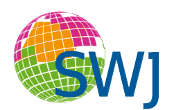Call for Papers: Special Issue on Expressive Natural Language Interfaces for the Semantic Web
Call for papers: Special Issue on
Expressive Natural Language Interfaces for the Semantic Web
As the amount of structured knowledge published as Linked Data and stored in proprietary knowledge bases keeps growing, so does the need for effective ways to query it and access it. Aiming towards more intuitive and human-readable alternatives to formal query and knowledge representation languages, research in Question Answering (QA) for the Semantic Web has received increasing interest in the past years, leading to systems of varying expressiveness as well as to the dedicated QALD series of evaluation campaigns. However, and despite the gradual shift towards increasingly more complex question constructions (e.g. questions including superlatives and quantifiers), the primary focus remains largely on factoid questions that admit to lightweight models typically endorsed in Linked Data sets and lightweight knowledge bases, such as DBpedia. On the other side, the main focus of investigations into the communication of the content of semantic repositories has been on mere verbalization of ontologies, with limited natural language generation techniques and interactivity with end users.
As a result, much of the available knowledge that is inherently characterized by complex relational contexts, such as commonly confronted in, among others, pervasive computing and healthcare application domains, remains still inaccessible for non-Semantic Web experts. Adhering often to pattern-based modeling, interaction over such knowledge poses additional challenges, since the conceptual granularity mismatch between the user question and the underlying conceptualization is further aggravated by the encapsulation of domain semantics inside conceptual layers of abstraction, often including reification and container classes. Going beyond the lightweight models that Linked Data and knowledge bases such as DBpedia admit to, building Natural Language (NL) interfaces for querying and accessing conceptually rich knowledge bases poses additional challenges. These include support for complex NL questions and flexible, context-aware query interpretation, as well as more intuitive answer communication paradigms.
The aim of this special issue is to foster investigations into expressive NL interfaces for the Semantic Web that go beyond the discovery of connections between ground facts in large but conceptually lightweight knowledge bases, and address in amore integral way the challenges involved in bridging the gap between the way users communicate their information needs, the way domain knowledge is captured, and the way the requested information is communicated.
Topics
We solicit original papers addressing the challenges involved in building NL interfaces for conceptually rich knowledge bases, i.e. effective paradigms for formalizing and translating complex NL questions into structured queries so that pertinent answers can be retrieved from the underlying knowledge bases, as well as for rendering ontological representations that admit to rich relational contexts in adequate natural language.
Topics of interest include (but are not limited to):
- Contextual query answering
- Pattern-based query interpretation
- Knowledge patterns in NL analysis and generation
- SPARQL query generation
- Hybrid question answering (OWL, rules, graphs)
- Graph-based query evaluation
- Language resources for question answering
- Ontology-based NL generation
- Querying over complex temporal contexts
- Multi-lingual question answering
- Uncertainty handling in question answering
- Coupling of ontologies with machine learning for question answering
- Applications in healthcare, pervasive computing, biomedical, etc.
- Web and social media mining for semantic knowledge extraction
- Ontology-based linguistic annotations for NL generation
Submission Instructions
Submissions shall be made through the Semantic Web journal website at http://www.semantic-web-journal.net. Prospective authors must take notice of the submission guidelines posted at http://www.semantic-web-journal.net/authors. Note that you need to request an account on the website for submitting a paper. Please indicate in the cover letter that it is for the "Expressive NLIs for the Semantic Web" special issue.
All manuscripts will be reviewed based on the SWJ open and transparent review policy and will be made available online during the review process.
Important Dates
- Submission deadline: 30-Oct-2016
- Notifications: 15-Jan-2017
Guest editors
The guest editors can be contacted at expressiveNLIs_swj@llista.upf.edu.
- Stamatia Dasiopoulou, Pompeu Fabra University, Spain
- Georgios Meditskos, Centre for Research and Technology Hellas, Greece
- Leo Wanner, ICREA and Pompeu Fabra University, Spain
- Stefanos Vrochidis, Centre for Research and Technology Hellas, Greece
- Philipp Cimiano, Bielefeld University, Germany
Guest editorial board (to be completed)
- Nick Bassiliades, Aristotle University of Thessaloniki, Greece
- John Bateman, University of Bremen, Germany
- Antonis Bikakis, University College London, UK
- Luisa Coheur, Instituto Superior Tecnico, Portugal
- Oscar Corcho, Technical University of Madrid, Spain
- Mariana Damova, Mozaika, Bulgaria
- Aldo Gangemi, Paris Nord, France and ISTC-CNR Rome, Italy
- Ioannis Kompatsiaris, CERTH-ITI, Greece
- Valentina Presutti, ISTC-CNR Rome, Italy
- Elena Simperl, University of Southampton, UK
- Steffen Staab, University of Koblenz-Landau, Germany
- Giorgos Stoilos, National Technical University of Athens, Greece
- Yannis Tzitzikas, FORTH-ICS, Greece
- Christina Unger, CITEC, Bielefeld University, Germany
The guest editorial board will be recruited based on the topics of the submitted papers.
- Pascal Hitzler's blog
- Log in or register to post comments
- 19163 reads
